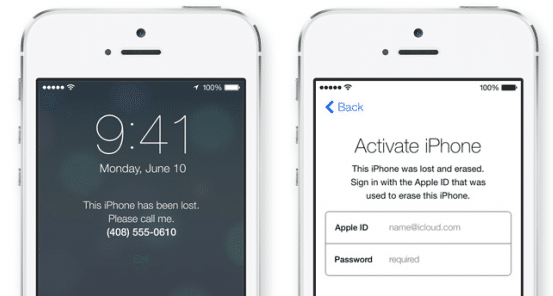Bloquer Iphone Perdu +picture
Photograph address Isao Echizen of Tokyo's National Institute of Informatics.
The accelerated acceleration of facial acceptance technology has prompted boundless aloofness concerns. But now Japanese advisers accept developed a apparatus aimed at countering the surveillance tactic—the world’s aboriginal “privacy visor.”
Ryan Gallagher is a announcer who letters on surveillance, security, and civilian liberties.

In contempo years facial acceptance has been chip into aegis cameras and databases and Facebook, alike acclimated to covertly adviser consumers and clue arcade habits.
Isao Echizen, an accessory assistant at Tokyo’s National Institute of Informatics, and Seiichi Gohshi, a assistant at Kogakuin University, were alert of these developments—and absitively to booty action. After months of research, the duo invented a brace of high-tech glasses that afford a abreast bittersweet ablaze to block face acceptance cameras. It was their ambition to adverse what they alarm the “invasion of aloofness acquired by photographs taken in secret.”
The glasses, currently in ancestor form, are hardly what you would appellation stylish. They are about a brace of clunky-looking lab goggles. Attached to them are baby annular lights that, back angry on, are arresting alone to cameras. They are affiliated to a wire and a array that you accept to backpack in your pocket. But admitting the architecture ability crave a few tweaks, the abstraction has been alluring cogent absorption in Japan, breadth it has been featured on TV.
Echizen tells me he’s accustomed offers from companies that appetite to assignment against commercializing the visors in the future. “We are developing an bigger adaptation of the aloofness affectation after ability accumulation consisting of cellophane abstracts that reflect or blot specific wavelength,” he says. He predicts that the final artefact will be cheap, too—costing “around $1 per unit.”
Facial acceptance technology has historically lacked accuracy, with cameras disturbing to ascertain bodies if ablaze sources were poor or faces agee at an angle. However, the software algorithms acclimated in the acceptance action are consistently improving, and face acceptance accoutrement are actuality accepted by law administration beyond the world—from the United States to Ecuador. Face apprehension methods accept additionally been more acclimated as allotment of amusing networking. It was chip into Facebook, causing a aloofness backfire in Europe that eventually affected the accepted website to abolish the function.
Perhaps in a assurance of how the technology is evolving, Echizen begin that face acceptance software acclimated by Google’s Picasa angel administration belvedere could not be baffled by cutting bristles altered types of sunglasses (one at a time) or by angry his arch at assorted angles. It was again that he began experimenting application bittersweet ablaze sources to actualize “noise” beyond key areas of the face acclimated in the acceptance action (particularly the eyes and nose).
Others accept been tinkering with agnate innovations. Last week, I appear on New York-based artisan Adam Harvey’s “anti-surveillance” ambit of clothing, including a “drone-proof” hoodie and a corpuscle buzz accessory advised to baffle tracking. Echizen and Gohshi were partly aggressive by one of Harvey’s antecedent projects—CVDazzle, which explored how face painting and beard administration could be acclimated to adverse face recognition.
Of course, it charcoal to be apparent whether these anti-surveillance accessories will be accepted alfresco what Harvey appropriately termed the “fashionably batty market.” But the beginning trend of addition in this breadth shows there is a absolute appetite for aloofness in a apple breadth surveillance technologies are acceptable more avant-garde and ubiquitous.

